Politics
Algeria's powerful army chief dies at pivotal point in political crisis – The Globe and Mail
Algeria’s army chief Lieutenant-General Ahmed Gaed Salah attends newly elected Algerian President Abdelmadjid Tebboune’s swearing-in ceremony, in Algiers, Algeria, on Dec. 19, 2019.
RAMZI BOUDINA/Reuters
Algeria’s powerful army chief Lieutenant-General Ahmed Gaed Salah, who was instrumental in bringing down long-time president Abdelaziz Bouteflika, has died of a heart attack, state media reported on Monday.
The 79-year-old’s death comes at a time of mass protests across Africa’s largest country, with many Algerians demanding that the ruling elite relinquish power and the influential military step back from politics.
Gaed Salah’s departure may not signify major changes to Algeria’s economic and political policies, however, with the country’s senior generals united over the handling of the protests.
“The army hierarchy is unified and it will move on after Gaed Salah as it did before him. Algeria’s army is a single block, not under the influence of one general but with consensus as its engine,” said a retired general who asked not to be named.
President Abdelmadjid Tebboune announced a three-day mourning period and said the head of land forces, General Said Chengriha, would take over as acting chief of staff of the military.
Gaed Salah’s death comes less than a week after Tebboune was inaugurated following an election that the army had pushed for as the only way to resolve the crisis over the mass protests. Demonstrators opposed the vote and official figures showed only 40 per cent of the electorate cast ballots.
The authorities have so far rejected any systematic attempt to crush the protests with violence, allowing them to continue each week but stepping up the police presence in recent months and detaining many demonstrators.
“He kept his promise to save the blood of Algerians during a tough period,” Islam Benatia, a prominent figure in the protest movement, said on Facebook.
‘CIVILIAN, NOT MILITARY STATE’
The army’s central role in Algerian politics was underlined last week when Tebboune’s first act after being sworn in was to embrace Gaed Salah and present him with an order of merit.
Weeks after mass protests erupted early this year, Gaed Salah’s televised speech urging president Bouteflika to quit swiftly led to the veteran leader’s resignation.
The army then backed a series of arrests of Bouteflika allies and senior businessmen in an anti-corruption campaign that was widely seen as a purge of the military’s rivals within the ruling system.
But it was not enough to appease the protesters, many of whom had begun calling for Gaed Salah’s resignation. One constant chant throughout the protests has been for “A civilian state, not a military state.”
The army has been central to Algerian politics since it won independence from France in 1962 following a guerrilla war against the colonial power. Most of the country’s leaders since that period, including Gaed Salah and the new acting army chief Chengriha, have been veterans of that struggle.
ALGERIA’S MOST POWERFUL FIGURE
Gaed Salah received military training in the Soviet Union and became head of Algeria’s land forces in 1994, early in the civil war between the state and Islamist insurgents that killed 200,000 people.
Bouteflika appointed him army chief a decade later. In the past 15 years he consolidated the military’s power in the ruling elite, helping Bouteflika face down the once-dominant intelligence service.
As Bouteflika and his allies were ousted this year, the army’s central role became more pronounced and Gaed Salah emerged as the most powerful figure in the country.
He pushed hard for this month’s election to replace Bouteflika, a vote that the protesters rejected as a charade designed to keep the ruling elite in place, but was seen by the army as necessary to restore constitutional rule.
“Thank God we have a president now. Imagine what would have happened if there was no president,” said another retired general.
Gaed Salah’s funeral will take place on Tuesday, a day on which students have been staging weekly protests for much of the year.
Our Morning Update and Evening Update newsletters are written by Globe editors, giving you a concise summary of the day’s most important headlines. Sign up today.
Politics
Viewer asks about Trump followers' assertion that trial is political. CNN anchor responds – CNN


Viewer asks about Trump followers’ assertion that trial is political. CNN anchor responds
New York Times reporter and CNN senior political analyst Maggie Haberman joins CNN’s Laura Coates to answer questions from viewers about the hush money trial of former President Donald Trump.
Politics
Trump faces political risks as trial begins – NBC News


IE 11 is not supported. For an optimal experience visit our site on another browser.
-



More than 20 tornadoes reported as tens of millions face severe weather threat
00:57
-



Shoe cobbler becomes unlikely TikTok star
01:48
-


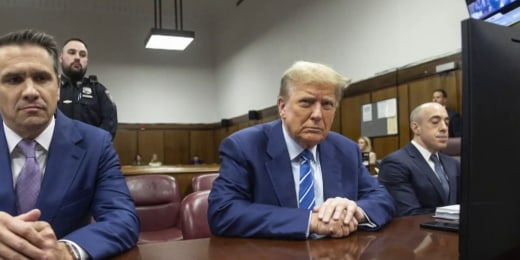
First jurors selected to serve in Trump hush money trial
03:07
-



Israel’s military vows response to Iranian attack
01:31
-



DOJ reportedly set to sue Live Nation in antitrust challenge
00:52
-



Boeing whistleblower says 787 Dreamliner has production flaw
03:25
-

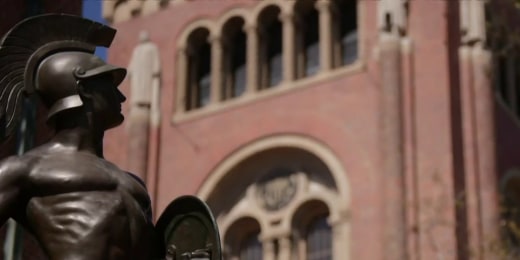
USC cancels commencement speech by class valedictorian
01:36
-

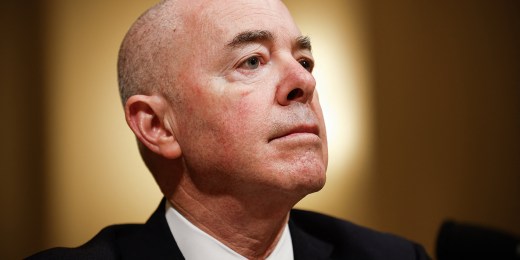
House delivers articles of impeachment against Mayorkas to Senate
01:49
-

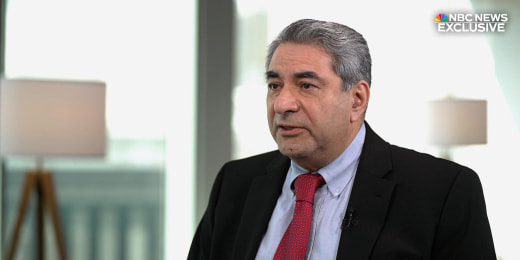
Boeing engineer says worldwide 787 fleet ‘needs attention’
00:20
-


Two bodies found in Oklahoma are believed to be missing Kansas women
01:42
-


Video shows men damaging ancient rocks in national park
01:46
-


White House tries to prevent a wider war in the Mideast
02:01
-


Israel’s military vows military response after Iran attack
02:59
-


Caitlin Clark talks about her WNBA dream
01:52
-
Now Playing


Trump faces political risks as trial begins
00:53
-
UP NEXT

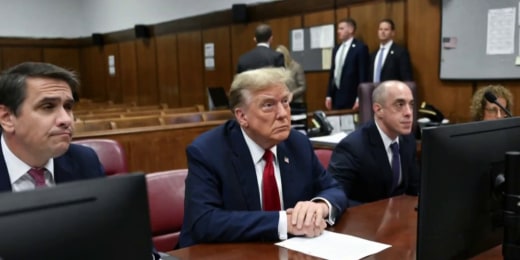
Jury selection begins in Trump’s hush money trial
02:54
-


Arrests made in connection to disappearance of two Kansas moms
01:30
-

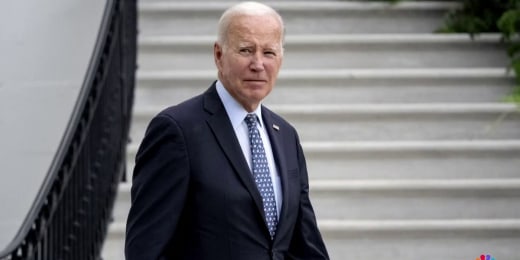
President Biden urges restraint after Iran’s attack on Israel
03:19
-
UP NEXT



More than 20 tornadoes reported as tens of millions face severe weather threat
00:57
-



Shoe cobbler becomes unlikely TikTok star
01:48
-



First jurors selected to serve in Trump hush money trial
03:07
-



Israel’s military vows response to Iranian attack
01:31
-



DOJ reportedly set to sue Live Nation in antitrust challenge
00:52
-



Boeing whistleblower says 787 Dreamliner has production flaw
03:25
Politics
Florida's Bob Graham dead at 87: A leader who looked beyond politics, served ordinary folks – Toronto Star
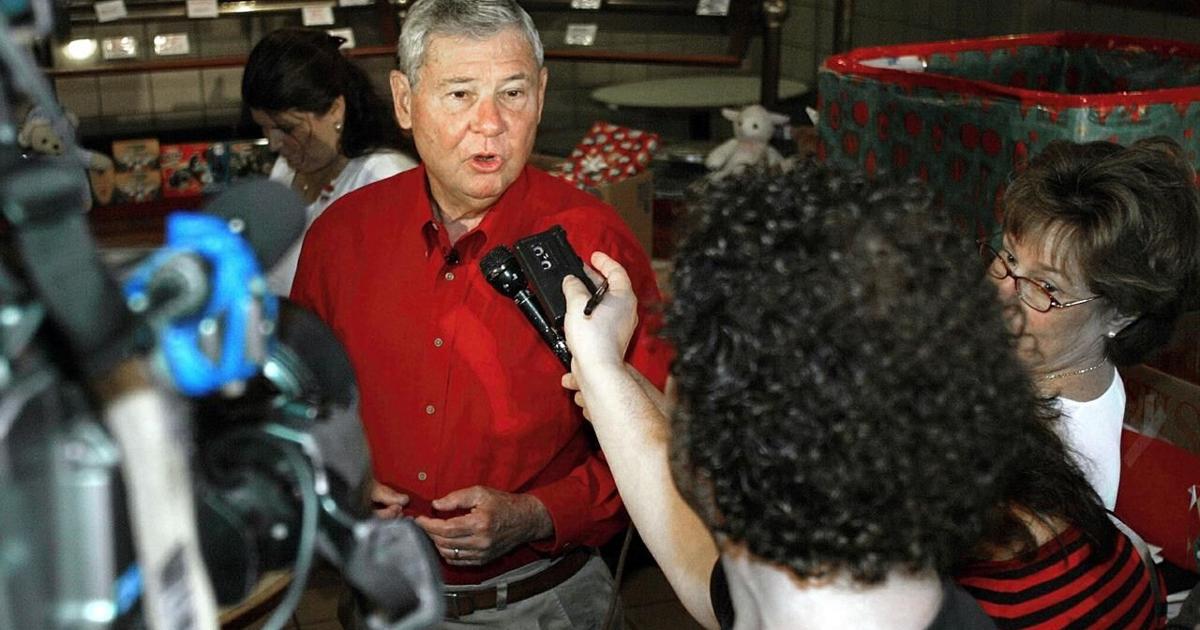

/* OOVVUU Targeting */
const path = ‘/news/world/united-states’;
const siteName = ‘thestar.com’;
let domain = ‘thestar.com’;
if (siteName === ‘thestar.com’)
domain = ‘thestar.com’;
else if (siteName === ‘niagarafallsreview.ca’)
domain = ‘niagara_falls_review’;
else if (siteName === ‘stcatharinesstandard.ca’)
domain = ‘st_catharines_standard’;
else if (siteName === ‘thepeterboroughexaminer.com’)
domain = ‘the_peterborough_examiner’;
else if (siteName === ‘therecord.com’)
domain = ‘the_record’;
else if (siteName === ‘thespec.com’)
domain = ‘the_spec’;
else if (siteName === ‘wellandtribune.ca’)
domain = ‘welland_tribune’;
else if (siteName === ‘bramptonguardian.com’)
domain = ‘brampton_guardian’;
else if (siteName === ‘caledonenterprise.com’)
domain = ‘caledon_enterprise’;
else if (siteName === ‘cambridgetimes.ca’)
domain = ‘cambridge_times’;
else if (siteName === ‘durhamregion.com’)
domain = ‘durham_region’;
else if (siteName === ‘guelphmercury.com’)
domain = ‘guelph_mercury’;
else if (siteName === ‘insidehalton.com’)
domain = ‘inside_halton’;
else if (siteName === ‘insideottawavalley.com’)
domain = ‘inside_ottawa_valley’;
else if (siteName === ‘mississauga.com’)
domain = ‘mississauga’;
else if (siteName === ‘muskokaregion.com’)
domain = ‘muskoka_region’;
else if (siteName === ‘newhamburgindependent.ca’)
domain = ‘new_hamburg_independent’;
else if (siteName === ‘niagarathisweek.com’)
domain = ‘niagara_this_week’;
else if (siteName === ‘northbaynipissing.com’)
domain = ‘north_bay_nipissing’;
else if (siteName === ‘northumberlandnews.com’)
domain = ‘northumberland_news’;
else if (siteName === ‘orangeville.com’)
domain = ‘orangeville’;
else if (siteName === ‘ourwindsor.ca’)
domain = ‘our_windsor’;
else if (siteName === ‘parrysound.com’)
domain = ‘parrysound’;
else if (siteName === ‘simcoe.com’)
domain = ‘simcoe’;
else if (siteName === ‘theifp.ca’)
domain = ‘the_ifp’;
else if (siteName === ‘waterloochronicle.ca’)
domain = ‘waterloo_chronicle’;
else if (siteName === ‘yorkregion.com’)
domain = ‘york_region’;
let sectionTag = ”;
try
if (domain === ‘thestar.com’ && path.indexOf(‘wires/’) = 0)
sectionTag = ‘/business’;
else if (path.indexOf(‘/autos’) >= 0)
sectionTag = ‘/autos’;
else if (path.indexOf(‘/entertainment’) >= 0)
sectionTag = ‘/entertainment’;
else if (path.indexOf(‘/life’) >= 0)
sectionTag = ‘/life’;
else if (path.indexOf(‘/news’) >= 0)
sectionTag = ‘/news’;
else if (path.indexOf(‘/politics’) >= 0)
sectionTag = ‘/politics’;
else if (path.indexOf(‘/sports’) >= 0)
sectionTag = ‘/sports’;
else if (path.indexOf(‘/opinion’) >= 0)
sectionTag = ‘/opinion’;
} catch (ex)
const descriptionUrl = ‘window.location.href’;
const vid = ‘mediainfo.reference_id’;
const cmsId = ‘2665777’;
let url = `https://pubads.g.doubleclick.net/gampad/ads?iu=/58580620/$domain/video/oovvuu$sectionTag&description_url=$descriptionUrl&vid=$vid&cmsid=$cmsId&tfcd=0&npa=0&sz=640×480&ad_rule=0&gdfp_req=1&output=vast&unviewed_position_start=1&env=vp&impl=s&correlator=`;
url = url.split(‘ ‘).join(”);
window.oovvuuReplacementAdServerURL = url;
TALLAHASSEE, Fla. (AP) — A leader like Bob Graham would be a unicorn in the hyper-partisan politics of today.
The former Florida governor and U.S. senator wasn’t a slick, slogan-spouting politician. He didn’t have an us-against-them mentality. Sometimes, he even came across as more of a kind-hearted professor just trying to make the world a better place.
function buildUserSwitchAccountsForm()
var form = document.getElementById(‘user-local-logout-form-switch-accounts’);
if (form) return;
// build form with javascript since having a form element here breaks the payment modal.
var switchForm = document.createElement(‘form’);
switchForm.setAttribute(‘id’,’user-local-logout-form-switch-accounts’);
switchForm.setAttribute(‘method’,’post’);
switchForm.setAttribute(‘action’,’https://www.thestar.com/tncms/auth/logout/?return=https://www.thestar.com/users/login/?referer_url=https%3A%2F%2Fwww.thestar.com%2Fnews%2Fworld%2Funited-states%2Ffloridas-bob-graham-dead-at-87-a-leader-who-looked-beyond-politics-served-ordinary-folks%2Farticle_0920ca6f-2233-5d7e-b2c9-82330901a187.html’);
switchForm.setAttribute(‘style’,’display:none;’);
var refUrl = document.createElement(‘input’); //input element, text
refUrl.setAttribute(‘type’,’hidden’);
refUrl.setAttribute(‘name’,’referer_url’);
refUrl.setAttribute(‘value’,’https://www.thestar.com/news/world/united-states/floridas-bob-graham-dead-at-87-a-leader-who-looked-beyond-politics-served-ordinary-folks/article_0920ca6f-2233-5d7e-b2c9-82330901a187.html’);
var submit = document.createElement(‘input’);
submit.setAttribute(‘type’,’submit’);
submit.setAttribute(‘name’,’logout’);
submit.setAttribute(‘value’,’Logout’);
switchForm.appendChild(refUrl);
switchForm.appendChild(submit);
document.getElementsByTagName(‘body’)[0].appendChild(switchForm);
function handleUserSwitchAccounts()
window.sessionStorage.removeItem(‘bd-viafoura-oidc’); // clear viafoura JWT token
// logout user before sending them to login page via return url
document.getElementById(‘user-local-logout-form-switch-accounts’).submit();
return false;
buildUserSwitchAccountsForm();
console.log(‘=====> bRemoveLastParagraph: ‘,0);
-



 Tech21 hours ago
Tech21 hours agoiPhone 15 Pro Desperado Mafia model launched at over ₹6.5 lakh- All details about this luxury iPhone from Caviar – HT Tech
-



 Sports21 hours ago
Sports21 hours agoLululemon unveils Canada's official Olympic kit for the Paris games – National Post
-



 Science23 hours ago
Science23 hours agoAstronomers discover Milky Way's heaviest known black hole – Xinhua
-
Media23 hours ago
NPR's liberal bias: Editor exposes media's lack of viewpoint diversity – USA TODAY
-
News19 hours ago
Toronto airport gold heist: Police announce nine arrests – CP24
-



 Tech19 hours ago
Tech19 hours agoVenerable Video App Plex Emerges As FAST Favorite – Forbes
-
News16 hours ago
Loblaws Canada groceries: Shoppers slam store for green onions with roots chopped off — 'I wouldn't buy those' – Yahoo News Canada
-
Investment14 hours ago
Saudi Arabia Highlights Investment Initiatives in Tourism at International Hospitality Investment Forum






